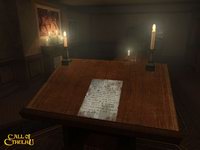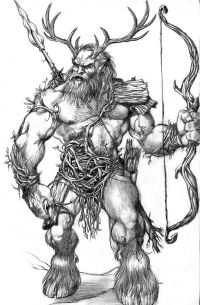| |
Site Navigation
Main
News
Forums
Games
Games Database
Top 100
Release List
Support Files
Features
Reviews
Previews
Interviews
Editorials
Diaries
Misc
Download
Gallery
Music
Screenshots
Videos
Miscellaneous
Staff Members
Privacy Statement
|
|
Last time we looked at digital delivery. While 31% of readers would prefer to order a boxed copy online, 25% are ready to embrace it. Around 27% of readers have reservations, while only 11% prefer to visit a retail store. This week grab a coffee to stay awake for a long ramble on the importance of stats.
 | | Jade Empire: helped or hindered by streamlined stats? |
Earlier this week we broke the story that Heretic Kingdoms 2 was under development according to Chris Bateman’s blog. Chris is a great writer with some good games under his belt such as Discworld Noir and, or course, Kult: Heretic Kingdoms – but he is also a respected game design academic, so his thoughts are always interesting. Chris’ comments arose from an entry by Peter Berger, who writes some entertaining stuff at Tea Leaves. Here’s a bit from Peter’s Notes on Designing the Perfect RPG:
The future of the CRPG as a genre depends on those pushing past the "show the user a spreadsheet full of numbers that slowly gets bigger over time" model of interaction. The best possible case is probably the disappearance of the genre as a separate recognized class (except among retrogaming fans), and for its best attributes to simply be absorbed by mainstream games, leaving the drudgery, such as inventory management, behind.
There’s a lot in that one paragraph to digest but let’s just use it as a springboard to look at stats in cRPGs.
Statistics have always played a role in cRPGs. Without getting into a “what is an RPG?” debate, I think most players would accept that statistics have to date been a core feature of the genre. Let’s also accept that people play cRPGs for different reasons – be it a genuine desire to create and play a role, a power-gaming desire to maximise a character build, just experiencing the gameworld itself or even playing dress-up with cool equipment. So, the question is: would cRPGs benefit from less reliance on stats – or even the complete removal of stats? Going further: is there a different paradigm without stats that would drive the genre forward?
First, we need to identify what separates cRPGs from other genres such as adventure or action-adventure games. As a group, cRPGs are diverse. Whereas - for example - most first-person shooters are driven by a fairly uniform burst-of-adrenaline action dynamic, cRPGs are a disparate group, so it is hard to throw an inclusive blanket over the entire genre. Story, combat, exploration, quests, puzzles and dialogue are common elements, all of which can be found in other genres to some degree or another. In the end, I think it is the ability for the player to interactively develop their character as they choose (within the structure of the game) as a central plank of the gameplay that most separates cRPGs from other genres. Remove the character development from a cRPG and you end up with an adventure game or squad-based strategy or whatever genre the remaining elements resemble. And while these genres all have their own fans, there is a group of players who enjoy the additional layers of depth and interactivity that a cRPG provides over other forms, as well as those for whom character progression itself is entertaining.
So, there must be some gameplay mechanic to provide that character customisation and development.
Does it have to be through statistics? Well, no. One method is to rely on discrete skills that can be earned/obtained throughout the game – we’ve seen this recently in Deus Ex: Invisible War (Biomods) and to some extent Kult: Heretic Kingdoms (Attunements). One problem with this system is the difficulty providing both sufficient width and depth of skills for players to develop their character in a rewarding way throughout the game.
 | | Call of Cthulhu: a portent of the future? |
One other way is to obfuscate the stats. If you have ever looked into Headfirst’s long-delayed Call of Cthulhu: Dark Corners of the Earth, you’ll know this first-person action/adventure game attempts to dispense with an on-screen interface by having the player experience everything through the eyes of the character; a hard blow might make the screen suddenly reel, for example, or poison might make the screen blur and the controls react sluggishly. To a tiny extent, this has also been attempted by Fable with on-screen avatars that change to reflect character’s physical attributes. Now imagine the complexity required to successfully implement this across the board in a detailed cRPG, with character progression. You’ll need to sense the improvement with your sword, see the damage caused by that strike to the enemy, experience your health failing. I have no doubt someone will attempt this one day - and properly implemented it might redefine that over-used term “immersion”…but it simply hides the underlying statistics used by the game mechanics and I for one will still want to know what those stats are – I want more feedback, not less.
Of course, rather than removing stats altogether we could consider simplification and minimising their impact. Ultimately, while it’s basic bad design to have unnecessary stats, it’s no better to simplify them just for the sake of it. As an example, Jade Empire was met with critical acclaim but many reviewers noted reservations. Here’s a snippet from Greg Kasavin’s
review at GameSpot:
At any rate, fans of the company's previous efforts may be disappointed to find that Jade Empire is in some ways a step backward. While playing, it's hard not to wonder about exactly what the developer was intending to accomplish, since this overly streamlined design ends up leaving out a number of elements that made earlier BioWare RPGs deeper and more engaging by comparison.
Going back to where we started and looking at Chris Bateman’s own cRPG design from Kult: Heretic Kingdoms (and let me note I am a fan of this game) we find the intentionally simplified stats have little impact on the game (and in trying to avoid numeric stats, the ‘F-‘ through to ‘A+’ system is simply more confusing). To be fair, Kult was designed in record time and does successfully innovate in other ways.
It’s time to wrap up this long-winded discourse. I believe the use of stats is the most efficient way of providing a deep and effective character development system. If the stats have little impact on the gameplay, the player is left with a series of useless, meaningless numbers…conversely, a design that integrates the stats into the gameplay - where the stats have a visible impact – rewards the player for developing their character. If there is a problem, it’s with cRPG designs that neuter stats and interfaces that don’t provide clear feedback on what they do in the game.
What’s your opinion on stats? Are they an anachronism holding the genre back? Boring and unnecessarily complex? Or do they provide an avenue for interaction critical to a good cRPG? Hit the poll on the left and we’d love to hear your comments. |
|
|





 Side Quest: What are the stats on that?
Side Quest: What are the stats on that?

